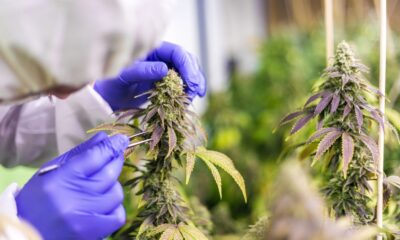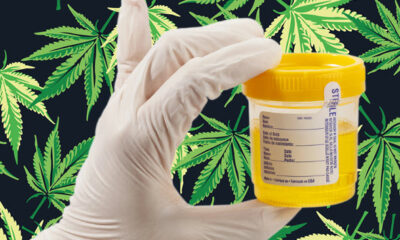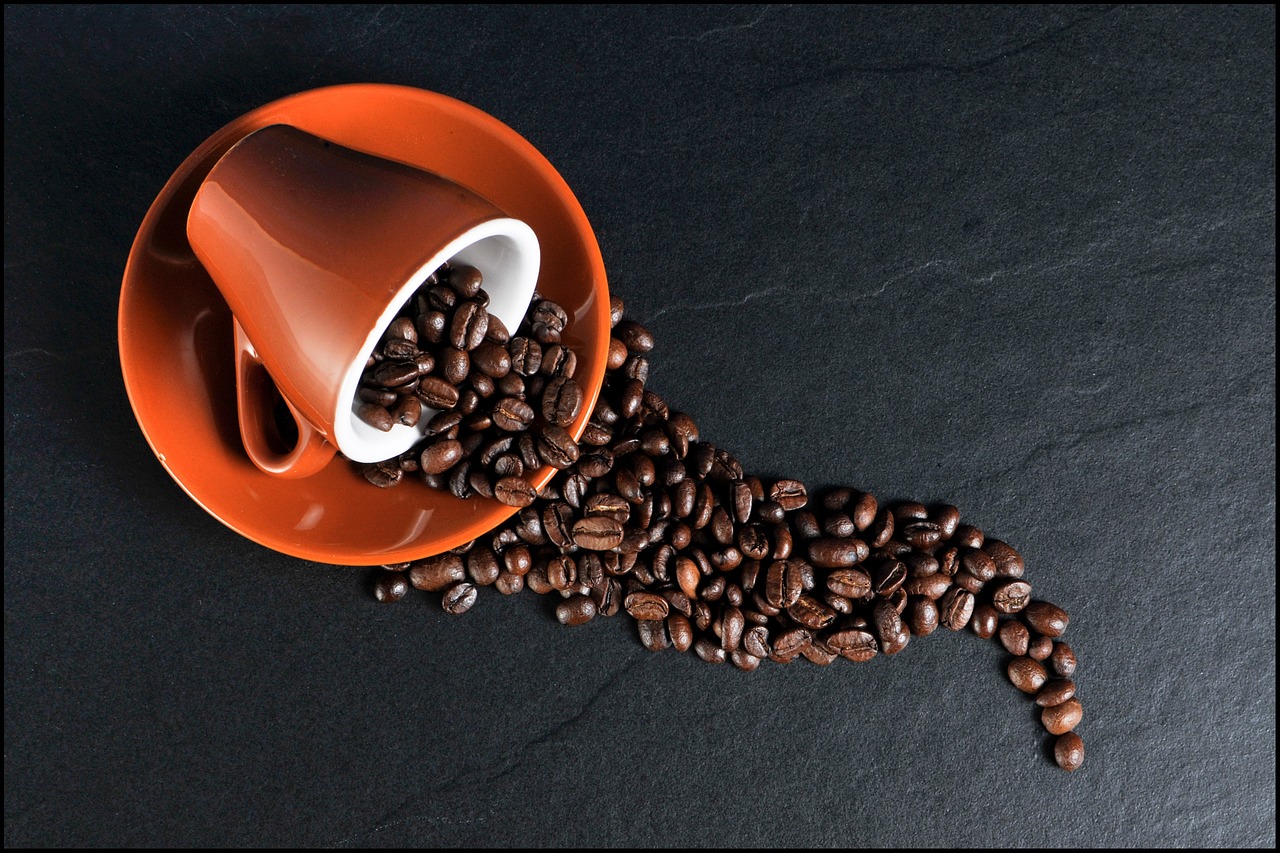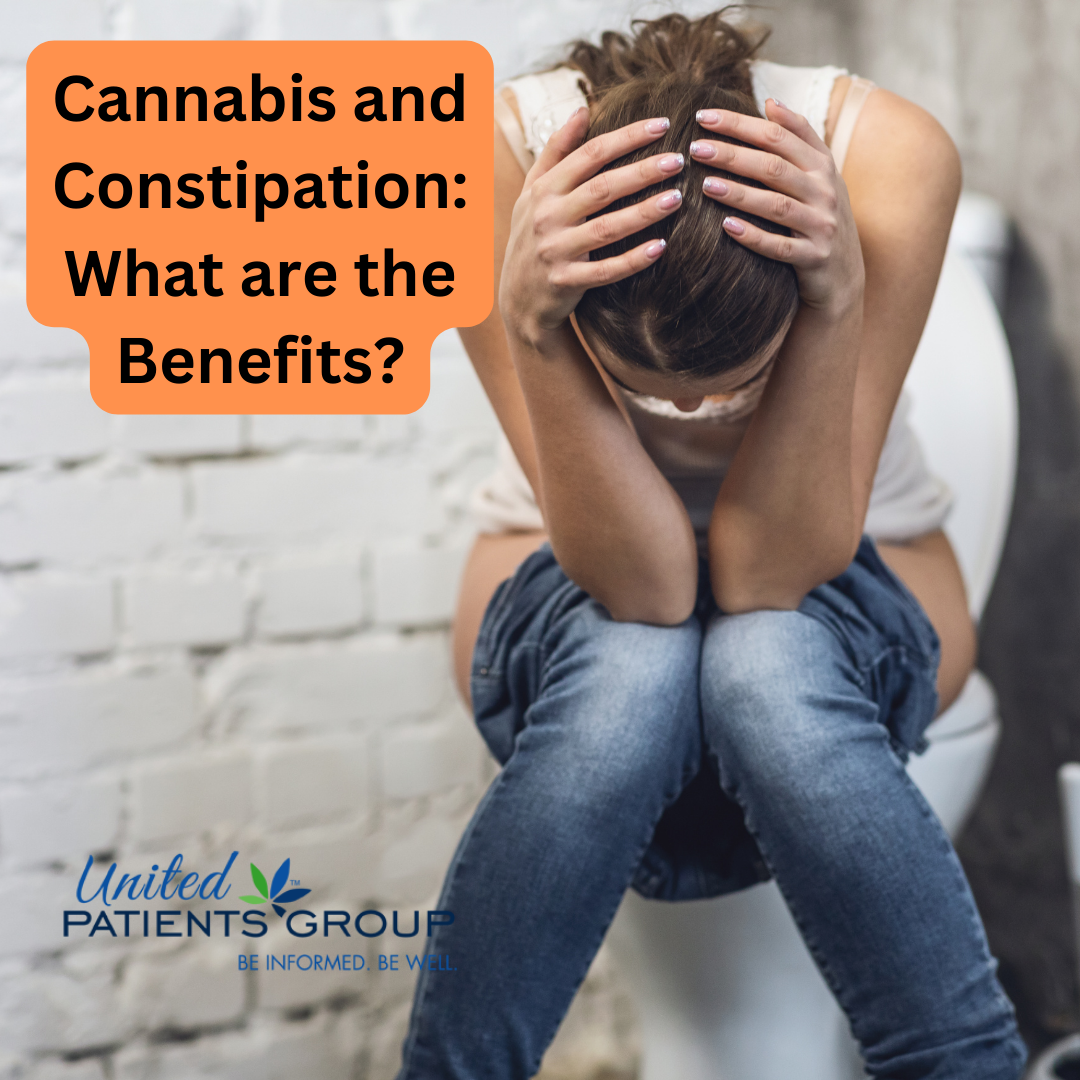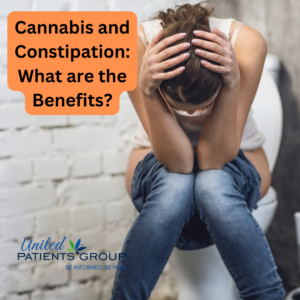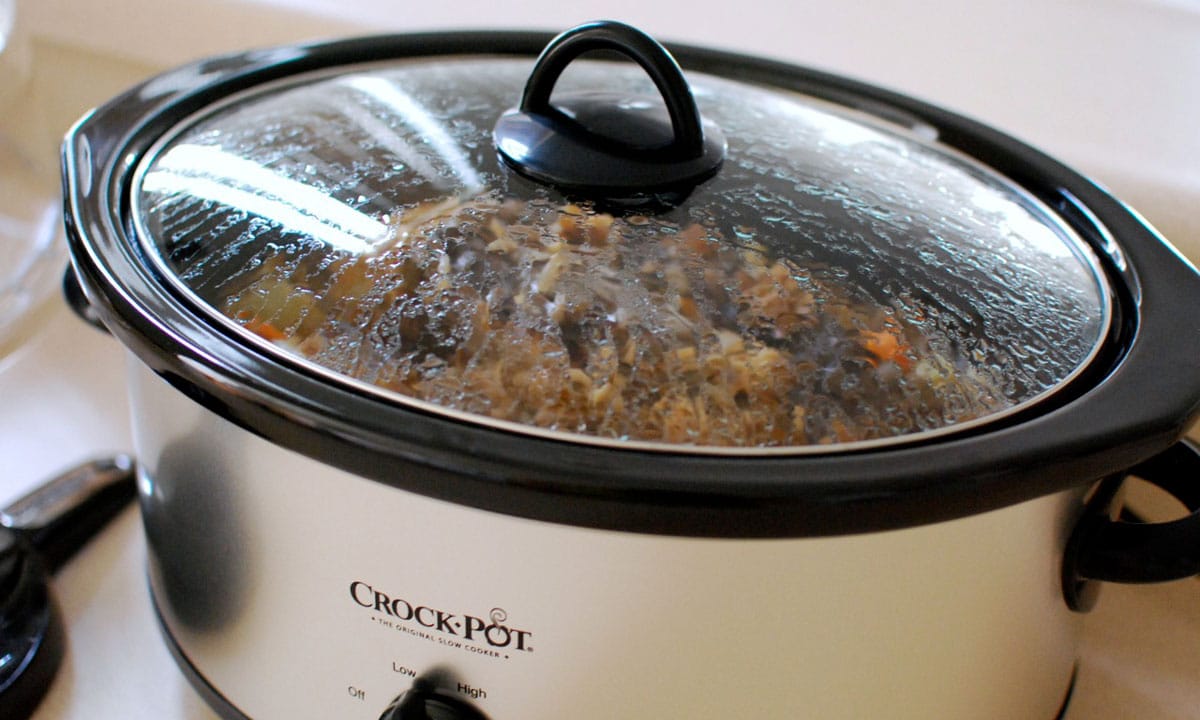Leafly’s Nick Jikomes PhD details the bacteria and other organisms living on and inside you, and how cannabis can alter your body’s interaction with this microscopic universe.
What is the microbiome?
The adult human body is composed of trillions of cells, with hundreds of distinct types each specialized to carry out specific functions. Each cell senses and responds to its external environment, including molecular signals coming from other human cells of the body. These signals influence what each cell does and how it does it.
In addition to all of your human cells, which each express different parts of your individual genome, a healthy adult body also contains trillions of other, non-human cells—microorganisms with their own, distinct genomes. The ecosystem of microbes living on your body’s surfaces is your microbiome.
Your full microbiome is a patchwork of local microbiomes. Each local patch of tissue on your body has its own little ecosystem of microbes specifically adapted to live there. The gut microbiome is the ecosystem of microbes living within your gastrointestinal (GI) tract. The specific community of microbes will differ between sections of your GI tract, such as your esophagus, stomach, small intestine, and colon.
The composition of the microbiome within the GI tract is important because it influences everything from your ability to absorb specific nutrients to disease susceptibility and even brain function. There is a lot of research being done on the “microbiome-gut-brain axis,” which looks into how the microbiome mediates communication between our nervous system and gut.
Prebiotics, probiotics & dietary influences on the gut microbiome
There is constant cross-talk between the cells of your gut microbiome and human cells composing your body. How you live your life–what you put into it and how you behave–influences the composition of your microbiome. In turn, your microbiome influences your physiology and behavior. The microbiome is constantly changing, automatically and without your knowledge, in response to your lifestyle. It can also be changed deliberately by ingesting specific nutrients required for microbial growth (prebiotics), seeding your gut with “good bacteria” (probiotics), killing bacteria in your gut (e.g. with antibiotics), or consciously changing your diet.
Prebiotics are foods that nourish the cells of your gut microbiome. They are typically high-fiber. As gut health and its relationship to the microbiome have increased in popular awareness, consumer marketing has followed suit. Store-bought foods previously labeled, “High fiber” are now labeled, “With prebiotics,” with the underlying product unchanged. If your diet is too low in prebiotics like fiber, it’s more difficult for “good” bacteria to grow and more likely that other, potentially harmful microbes grow in their place.
Related
Does cannabis help or hurt the immune system?
Many people are now purchasing and consuming probiotics in the form of capsules containing specific types of “good bacteria.” While it is possible to influence the composition of your microbiome and promote growth of good bacteria in this way, many consumers end up wasting their money. For a probiotic to work, the good bacteria must be entering a gut with the right prebiotic environment. If your diet is generally unhealthy and does not contain sufficient levels of key prebiotic nutrients like fiber, then probiotics won’t help–the good bacteria you’re swallowing simply won’t grow.
Many probiotics also don’t contain enough bacterial cells to offer benefit. There has to be a critical mass of bacteria cells entering a properly nourishing environment for them to “take” and persist in your gut. Figuring out which bacteria you may want and how much to consume will require careful research and a disciplined approach to your diet.
Check out this clip from my conversation with Dr. Nathan Price to learn more about prebiotics, probiotics, and the gut microbiome:
Because there are so many points of contact between the cells of our body and our microbiome, virtually any change to your lifestyle will likely lead to changes in your microbiome. Changes in the gut microbiome have been linked to everything from stress levels to exercise routines and sleep patterns. Another key factor influencing the gut microbiome is our ingestion of pharmaceuticals.
Related
How to order weed delivery online with Leafly
Pharmaceutical drugs & the microbiome
Most of us are inadvertently influencing our gut microbiome by ingesting things that alter its composition. Antibiotics can exert a potent influence. If you get a bacterial infection and take antibiotics, this will often end up killing beneficial gut bacteria along with whatever bug you’re trying to get rid of. If you don’t replenish your body with the right nutrients, antibiotics can lead to a persistently altered gut microbiome, which may result in negative health consequences. This is why antibiotics should not be used without good reason, and why special attention should be paid to your diet following their use.
Shop highly rated dispensaries near you
Showing you dispensaries near
If you do have to take antibiotics to treat an infection, this can provide an opportunity to partially “reset” your microbiome. Antibiotics will kill off many of the bacteria of your gut. Some of them may be “good” bacteria helping you absorb key nutrients while others may be “bad” bacteria that produce toxins or cause irritation. What you want is to promote the growth and persistence of good bacteria once antibiotics partially “clear out” your gut microbiome. To achieve this, you would want to ingest a healthy diet with sufficient fiber, providing the right prebiotic environment for a diverse and beneficial microbiome to grow. You may additionally want to ingest probiotics following antibiotic use, helping to seed your gut microbiome with beneficial rather than harmful species. (As always, this is not medical advice and these things should be done in consultation with your doctor).
To learn more about how antibiotics impact the microbiome, check out my conversation with microbiologist Dr. Christoph Thaiss:
Psychiatric medications and other drugs can also impact your microbiome. For example, selective serotonin reuptake inhibitors (SSRIs), society’s default drug treatment for depression, can have this effect. Although serotonin is most well-known as a neuromodulator operating the brain, the majority of the body’s serotonin is found elsewhere, including the gut.
SSRIs change serotonin levels in both the brain and gut (which is why GI issues are a common side effect). This can not only alter the molecular environment of the gut and indirectly influence which microbes thrive, but SSRIs can have antimicrobial effects, exerting a direct influence on gut microbiome composition.
The effects of drugs on the microbiome is an area of ongoing research and much more could be said. To learn more, listen to my conversation with Dr. John Cryan:
Endocannabinoids & the gut microbiome
The endocannabinoid system (ECS) helps to regulate and maintain homeostasis in most tissues of the body. Endogenous cannabinoids and cannabinoid receptors are plentiful in the gut, where they help regulate everything from gut inflammation to motility (the movement of food along the GI tract) and permeability (the extent to which water and nutrients are absorbed from the GI tract into the body).
It would be surprising if cannabinoids didn’t affect the gut microbiome, given the known role of the ECS in regulating gut physiology. Dietary change can alter levels of circulating endocannabinoids in the body, which can influence things like gut permeability. Because endocannabinoids are fat-derived molecules, the fat composition of our diet is tied to the endocannabinoid levels in your body. In addition, the growth of specific microbes, such as the yeast Candida albicans, is known to manipulate the endocannabinoid system in animals in ways that change neuroendocrine levels and behavior.
The relationship between the ECS and microbiome is an area of active research. Many of the specific details remain to be worked out. To learn more about what’s being discovered about how the ECS plays into the relationship between the gut microbiome, diet, and lifestyle, check out this part of my conversation with Dr. Christoph Thaiss:
Given that endogenous cannabinoids can influence the gut microbiome, it suggests the possibility that plant cannabinoids may also do so.
Plant cannabinoids (THC, CBD) & the gut microbiome
The psychoactive effects of THC are produced through its interactions with CB1 receptors found in the brain. Although CB1 receptors are concentrated in the brain, they are also found outside the nervous system. The other major cannabinoid receptor of the body, CB2, is concentrated more heavily outside the nervous system, especially in cells of the immune system. It’s largely through CB2 receptor interactions on immune cells that cannabinoids like THC and CBD influence inflammation, often producing an anti-inflammatory effect.
The gut has a large concentration of immune cells, which help regulate gut inflammation and permeability. Conditions like inflammatory bowel disease (IBD) involve excessive gut inflammation, leading to various gastrointestinal issues. IBD and other diseases of the gut are also associated with changes in the gut microbiome. Plant cannabinoids like THC and CBD are currently being investigated for their potential ability to treat symptoms of gut diseases like IBD by modulating gut inflammation and potentially through alterations to the gut microbiome directly.
In experimental animals, it has been demonstrated that chronic THC administration induces a variety of changes to immune cells in the gut and can also alter the composition of the microbiome within certain parts of the GI tract of rodents. Whether these effects translate to humans remains to be determined, as does the specific clinical efficacy of plant cannabinoids like THC and CBD for diseases of the gut.
Although not a “gut disease,” multiple sclerosis is an inflammatory disease where neurons throughout the body can be damaged by an autoimmune response. It’s also associated with changes in the complexity and diversity of the microbiome in animals, including increased levels of the bacteria, Akkermansia muciniphila. In a rodent model of multiple sclerosis, administration of a THC/CBD combination reduced levels of this bacteria species and lessened inflammation.
Related
Cannabis for IBD: Can it help?
Overall, there is very little data on the specific effects of plant cannabinoids like THC and CBD on the microbiome. Given the important role the endocannabinoid system is known to play in the gut, it is plausible that plant cannabinoids have both direct and indirect influences on the gut microbiome. The details remain to be worked out, but the route of administration will likely be important. When cannabinoids like THC are ingested orally, they pass through the GI tract and are metabolized differently than when they enter the bloodstream directly (e.g. via inhalation). As a result, orally consumed cannabinoids will likely have a different effect on gut physiology compared to cannabinoids consumed in other ways.







